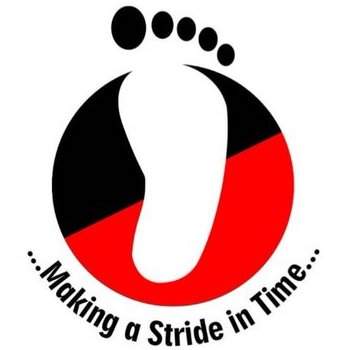Advertisement
2023 GOVERNORSHIP AND
STATE HOUSE OF ASSEMBLY ELECTIONS
- days
- Hours
- Minutes
- Seconds
Advertisement

As Nigeria joins the rest of the world to celebrate this year’s World Blood Donor Day, today, the World Health Organisation, WHO has urged African governments and political leaders to prioritise the provision of adequate human and financial resources to secure the future of national blood transfusion services.
Making the call in her message to mark the day, WHO Regional Director for Africa, Dr Matshidiso Moeti also called for more people to become regular blood donors.
According to her, a blood service that gives patients access to safe blood and blood products, in sufficient quantities, is a key component of an effective health system.
The theme of this year’ is “Donating blood is an act of solidarity. Join the effort and save lives,” this highlights the critical role of voluntary blood donations in saving lives, and enhancing community solidarity and social cohesion by donating just one unit of blood can save the lives of up to three patients.
The WHO Regional Director stated that compared to other regions globally, the African region sees a disproportionate number of conditions requiring donor blood, impacting as many as seven million patients every year.
Advertisement

She listed some of the conditions to include haemorrhage associated with pregnancy and childbirth, severe anaemia due to malaria and malnutrition, bone marrow and inherited blood disorders, trauma and accidents, as well as man-made and natural disasters.
She said: “While the need for donor blood is universal, access for everyone who needs it is not. In the African Region, demand regularly outstrips supply, negatively impacting timely access for all patients who need safe and quality-assured blood to save their lives.
“As a consequence of the COVID-19 pandemic, voluntary unpaid blood donations dropped significantly. Malawi, for example, registered a 46 per cent decrease in donations.
“Countries across the African Region have worked hard to improve blood donation frequency, and the situation is showing signs of stabilizing. Blood transfusion services in many countries reached out to blood donors through public awareness campaigns, transporting donors from and to their homes, using digital platforms and establishing call centres.”
She further stated that the situation remains challenging, and exacerbated by issues such as staff shortages and limited funding from governments and partner organisations for effective blood donor education, recruitment, and retention.
She said in the region, WHO provides support to countries at various levels, including resource mobilisation for the implementation of national blood transfusion plans, advocacy for integrating blood safety in these plans, and strengthening the legal and regulatory framework for blood safety.
She added that seeking out opportunities for partnerships and collaborations with media, the private sector, and faith-based and non-governmental organizations, will help increase the recruitment and retention of voluntary unpaid blood donors.
“I want to sincerely thank Africa’s blood donors for their selfless contribution to national health systems, through this life-saving gift to patients who need transfusion therapy.
“I also want to acknowledge the tireless efforts of blood services staff who are deeply committed to maintaining critical blood supplies, of the research and development professionals pursuing new technologies and uses for donated blood, as well as the medical teams who use blood rationally to save lives.
“Donating blood is an act of solidarity. By becoming a blood donor, you will help ease the pressure on health systems still struggling under the burden of the COVID-19 pandemic,” she stated.
(Vanguard)
Disclaimer
Contents provided and/or opinions expressed here do not reflect the opinions of The Pacesetter Frontier Magazine or any employee thereof.
Support The Pacesetter Frontier Magazine
It takes a lot to get credible, true and reliable stories.
As a privately owned media outfit, we believe in setting the pace and leaving strides in time.
If you like what we do, you can donate a token to us here. Your support will ensure that the right news is put out there at all times, reaching an unlimited number of persons at no cost to them.
Related posts
Stay connected
Recent News
Fubara-Wike Feud: Finance Commissioner loyal to Wike resigns over redeployment
Advertisement Issac Kamalum, a loyalist of Nyesom Wike, Minister of Federal Capital Territory, who is a member of Governor Similanayi…
NYPF commends Enugu gov’t on Foreign Direct Investments, charges them to be more tax friendly to MSMEs
Advertisement The Nigerian Young Professionals Forum, Enugu State, has urged the Enugu State Government to be more tax friendly to…








